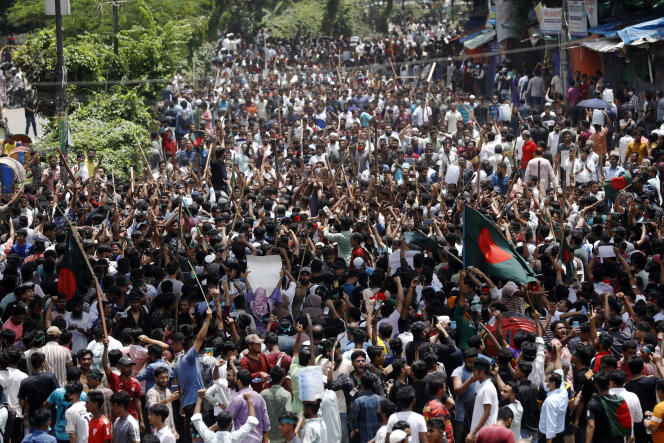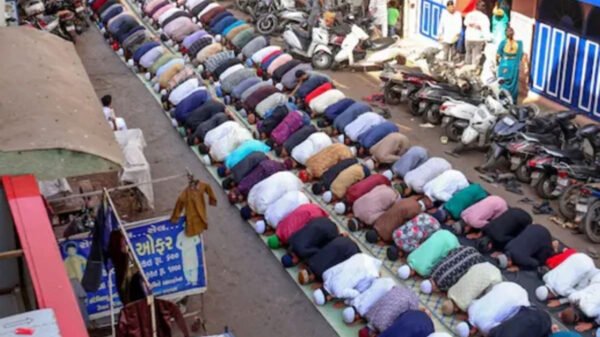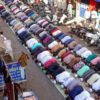Hundreds of thousands of Bangladeshi protesters clashed with government supporters on Sunday, demanding the resignation of Prime Minister Sheikh Hasina.
The violence marked one of the deadliest days since the demonstrations began, with at least 95 people killed, including 14 police officers, raising the total death toll since July to at least 283.
The protests, which initially started last month over civil service job quotas, have intensified into broader demands for Hasina to step down after 15 years in power. The clashes saw both sides using sticks and knives, with security forces responding with gunfire.
Police reported that protesters attacked their officers, including an assault on a station in Enayetpur, where 11 policemen were killed. In response, journalists reported sustained gunfire and defiance of a nationwide curfew, with mobile internet access severely restricted.
Amid the unrest, former army chief General Ikbal Karim Bhuiyan, along with other senior ex-officers, demanded the government withdraw troops and allow the protests to continue. Protesters in Dhaka were seen waving the national flag on top of an armored vehicle while soldiers looked on. Asif Mahmud, a key leader of the civil disobedience campaign, urged supporters to converge on Dhaka for what he called the “final protest.”
The violence, which began in July, briefly subsided when troops imposed order, but protests surged again this month as part of a non-cooperation movement aimed at crippling the government. Demonstrators, many carrying sticks, packed Dhaka’s Shahbagh Square and engaged in street battles across multiple locations.
In addition to the capital, violence spread to the northern city of Kishoreganj, where protesters set fire to a ruling party office, and other districts across the country. Some former military officers have joined the protests, with Bhuiyan calling for those responsible for the violence to be held accountable.
The protests, which have evolved beyond the issue of job quotas, now include calls for greater freedom and an end to what many perceive as government overreach. The movement has garnered support from various sectors, including the garment industry, with 47 manufacturers expressing solidarity with the demonstrators.
Obaidul Quader, general secretary of Hasina’s ruling Awami League, has urged party activists to rally nationwide in support of the government. Hasina, who has ruled since 2009 and won her fourth consecutive election in January amid allegations of vote rigging, faces criticism from rights groups for using state institutions to maintain power and suppress dissent.










